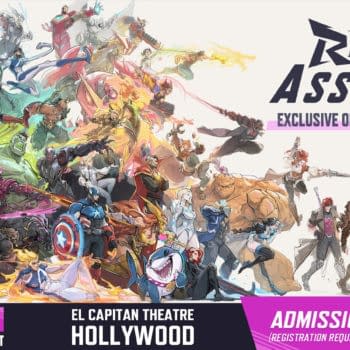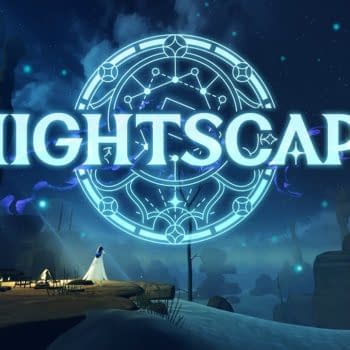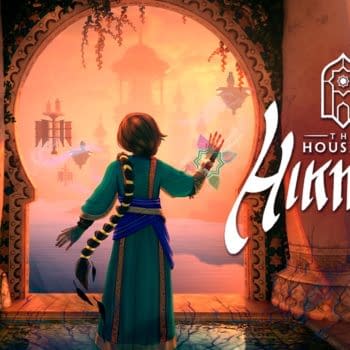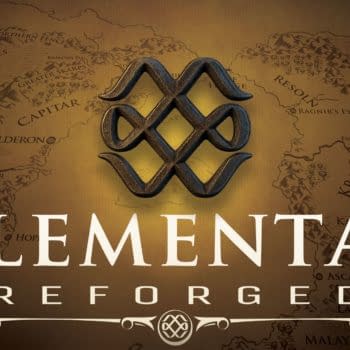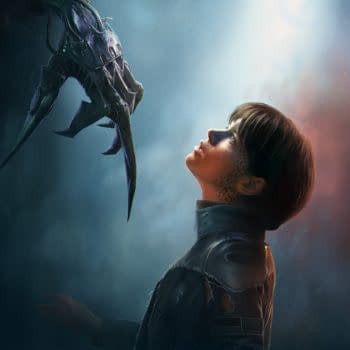Posted in: Games, Indie Games, Interview, Serenity Forge, Video Games | Tagged: Arcadian Atlas, Taylor Bair
Arcadian Atlas Interview: Chatting With Twin Otter's Taylor Bair
We chat with one of the cvo-founders of Twin Otter Studios to talk about their love of gaming, the creation of Arcadian Atlas, and more.
One of the latest games to drop over the past few weeks was the tactical RPG Arcadian Atlas, an amazing title from the crew at Twin Otter Studios and Serenity Forge. If you haven't checked the game out yet, this thing harkens back to the era of '90s title, with an amazing art style and story that will keep you playing for hours. As part of the promotion for the game, we got a chance to chat with the co-founder of Twin Otter, Taylor Bair, as she talked about the game's development and eventual release.
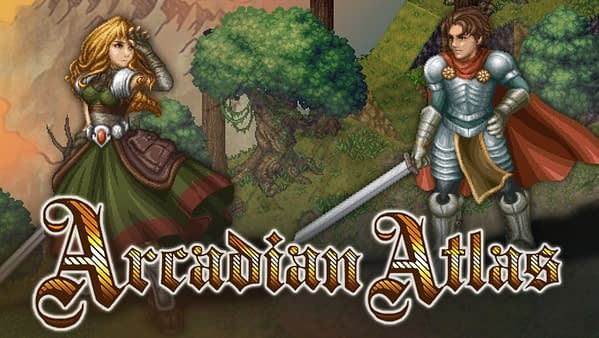
BC: Hey Taylor! First off, how have things been going for you this year?
TB: They've certainly been busy, and busy is a good thing! On top of all the fun work of completing the polish of Arcadian Atlas, our whole team has been jumping into promotion, talking to the community who helped get us here, and looking ahead to physical goods, porting opportunities, other localization languages we can support, and so much else!
What games have you both been checking out in your spare time and have enjoyed lately?
It's so funny, working on such a big project with our small team of four; I'm still finding spare moments to play big RPGs – though I complain I never have time! So, I've slowly been tossing between The Legend Of Zelda: Tears of the Kingdom, Pillars of Eternity II, and Gran Turismo 7, strangely enough. I also revisited both Super Mario RPG and Star Ocean: The Second Story, so [I] couldn't be more thrilled to see remakes of them in the pipeline!
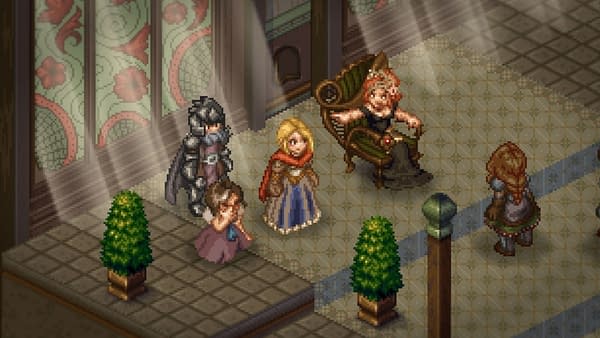
How did you and your sister Becca both get into gaming, and what did you enjoy most growing up?
I think we sort of fell into it naturally as kids, not being much the outdoorsy types. Our parents bought us the NES as our first console, and we were enraptured with Mario. As we got older, this expanded into game development – we used publicly available tools to make small games and share them in a small online community. Our true favorites were from the SNES and PS1 era, and RPGs were pretty much our bread and butter.
What were some of the biggest influences on you as far as wanting to become developers?
Story and design, especially stories told through strong characters that develop and grow over the course of the story (whether into heroes or monsters, because both can be compelling), and design in not just gorgeous art, but a cohesive world and exciting strategic options that make sense for the story they serve. Some of our all-time favorites were Chrono Trigger, Final Fantasy VI, Final Fantasy Tactics, of course, and the Suikoden series. Especially games that used animation to bring their characters to life.
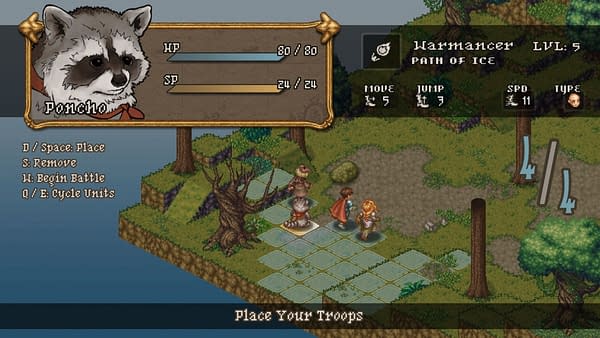
At what point did you decide to form your own studio, and where did the name Twin Otter come from?
Becca and I grew up very much entwined in our game development aspirations, so while we aren't twins, we'd often swim around in a circle to beat the harsh Texas heat and brainstorm game concepts or story ideas. The Twin Otters formed from that. We decided to form the studio in late 2015 as we both wanted to challenge ourselves creatively and try our hand at the tactical RPG genre we'd loved to death as kids. I was already writing, and Becca was already doing freelance pixel art, so it just made sense to do our own project and gather a team around that vision. We picked up the wonderful programmer, Paddy Otterness, and our astounding musician Moritz P. G. Katz in the early days, and we've been together ever since.
How did the concept for Arcadian Atlas come about? What was it like fleshing out the story behind it?
Even from the earliest concept of Arcadian Atlas, much of our main cast existed. I always knew there would be a Des and Vashti caught between two sides of a war (though Vashti was not her original name). And Lucretia – this strong-willed, guarded phenom of a woman was always declared illegitimate and determined to take back her crown. The cast on the sidelines developed slowly over time. Many of our characters were developed in pairs – Fennic and Annalise, Des and Vashti, Queen Venezia and Wulff. I think we most truly reveal and conceal ourselves in pairs. It's that push and pull that makes interesting characters, and how the choices they make impact everyone in their web of influence.
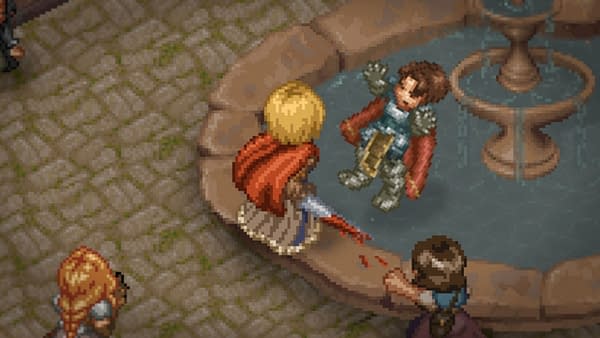
What was it like learning how to make a classic Tactical RPG for a modern era of gaming?
That was an absolute blast, largely because taking a classic concept and building on it gives you this foundation, and then you just start throwing things against the wall and see what sticks. We tried many different concepts with skill strategy, for instance – skills that would create walls and block certain attacks. It was confusing at best and unworkable at worst, but from it, we developed trap skills that lay area-of-effect traps on tiles that last several turns and force you to evaluate the risk/reward of trudging through them. There were numerous casualties left on the design floor, but what we got from it all is something special.
What was the biggest challenge you met while the game was in development?
Deciphering what was essential and what wasn't. Game development is a constant process of refinement, which means you can end up with a lot of time and energy devoted to ideas that simply don't serve the game at the end of the process and have to be tossed. The hardest part is setting clear lines in the sand early about what the game should be, and being ruthless to ensure that core experience survives and thrives. I know we all had ideas we really wanted to include – bonus content or interesting systems – that just didn't make sense with the world we were building.
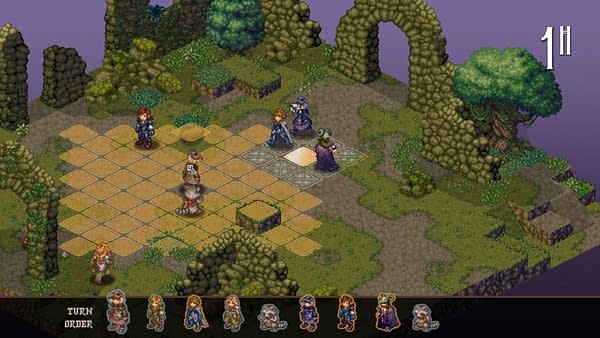
How did you end up working with Serenity Forge for them to publish it?
Serenity Forge was a light at the end of a rather dark pandemic-sized tunnel for us. The reality of game development is often you have to develop a game alongside a full-time career, and when the pandemic hit, we had already been struggling to make that balance and felt like the project deserved more time than we were able to give it. Serenity Forge gave us the injection of life that the project needed to revive things, and Becca worked hard to seek out a publisher that understood our vision and gave us space to create that vision.
What's the reaction been like from those who have tested the game and seen early builds of it?
There's always a fear you're going to get the stick rather than the carrot with feedback, but at every stage, our community has been nothing but supportive and a huge motivational push to improve what we developed. Comments, bug reports, questions, and words of encouragement poured in through every channel – it was truly a humbling experience, and we couldn't have asked for a better community.
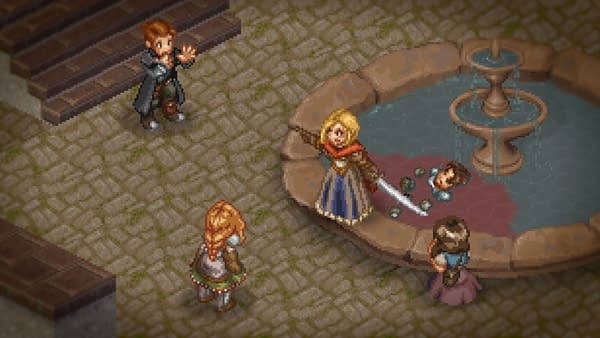
What are your thoughts heading into the release of Arcadian Atlas? What do you hope players will take from the game?
We're excited, and that excitement sometimes keeps us up at night! But it's good; we're just ready to have our baby sent out into the world. We hope people will see our deep love for the characters we've created, the depth of strategic choice, and how that weaves through the musical score. But mostly, we hope people will think of Vashti, Desmond, Lucretia, Poncho, and the rest of the characters as people they know. Some as warnings, and others as models, but all of them as people doing their best to navigate a difficult world.
Aside from the obvious, is there anything you'd like to promote?
The soundtrack is phenomenal, so whether digitally or through the vinyl, you should run – don't walk – to hear it!





